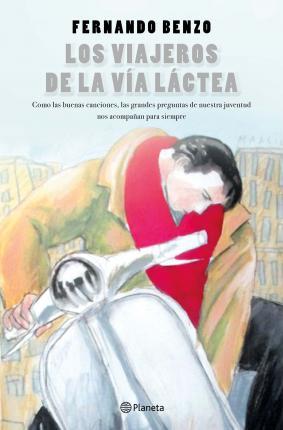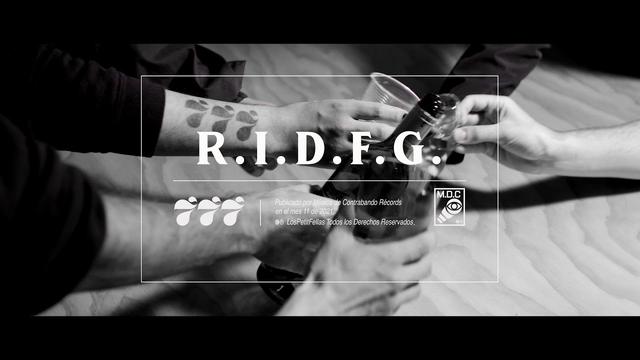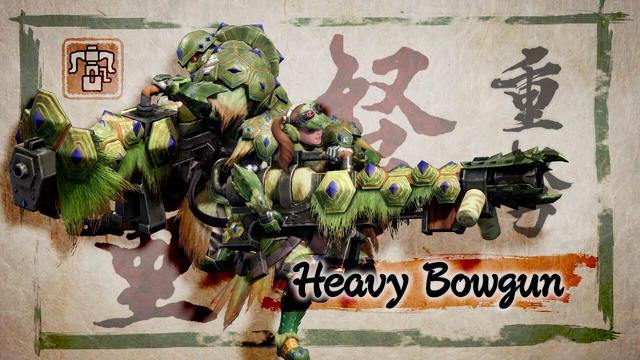THE NOVEL
In the nights of the eighties, music and fun met in La Vía Láctea. The young people danced, laughed, flirted, drank and dreamed of that perfect future that was opening up before their eyes, but in no hurry to get anywhere. The desire to change the world prevailed, transcendental questions were asked about life, love and happiness. And friendship was exalted above all things.
In one of those galactic nights, the foundations of the events were laid through which this tender and bittersweet choral novel narrated in two voices takes place, in which, with great rhythmic mastery and a great sense of humor, Fernando Benzo goes intermingling those wickerwork of life that are friendship, betrayal, dreams, disappointments, success and failure... And the secrets faithfully kept for more than three decades that finally end up coming to light.
Blanca and Javi, two victims of the same night who have managed to preserve their friendship over the years, look back and review what the last thirty years have been like, in an attempt to give, or at least outline, the answers to those big questions that have always been with them and with many of the readers who will feel identified with their experiences.
“The Travelers of the Milky Way” is one of those books that catches you from the beginning. With an agile prose, Fernando Benzo has written the chronicle of the generation of the so-called baby boomers, the life story of those who are "the fruit of the sexual insanity of our parents when in the sixties they began to realize that their lives were going to end." be better than that of our grandparents”, as one of the protagonists remembers.
With great narrative skill, the story jumps through the vital tempos of its protagonists, weaving an exciting plot that moves between yesterday and today, a common thread that begins in the nights of the eighties in Madrid and that It reaches our days, when the pandemic is changing the way we relate to each other and see the world.
It is inevitable to finish reading this novel and not remember the verses by Jaime Gil de Biedma in which he reminded us that life was serious and that one begins to understand it later.
A novel with a soundtrack…
This is a story that is not only read, but also hummed. The novel contains in its pages a complete soundtrack of those youthful years that remain in the collective memory of the leading generation. The musical references are many and of the most varied styles: Spanish pop, the greatest hits of all times, the New Romantics who conquered Europe with a baroque aesthetic and a very danceable rhythm: Mecano, Los Secretos, Talking Heads, Alan Parsons, Joe Cocker, Rick Astley, Los Planetas, Bob Dylan, Luis Eduardo Aute, UB40, Loquillo, Antonio Vega, David Bowie...
If we had to record a cassette (our protagonists probably prefer them to playlists), these would be some of the songs included in “Los viajeros de la Vía Láctea”: Don't control, I had a boyfriend who played in a beat band , Lost in my room, Don't You Want Me, Whitout You, Bad Connection, Lucy In The Sky With Diamonds, Rocket Man, Across The Universe, Mediterranean, Enola Gay, Tainted Love, Karma Chameleon, Just Can't Get Enough , Girl from yesterday, The night is not for me, Georgia On My Mind, Sweet Jane, Lady Madrid, Comfortably Numb, What A Wonderful World, Bad times for poetry, Amores de barra…
That musical influence can be seen not only in the mentions of songs and performers that the author makes to set the scenes, but also in the rhythm of the descriptions, almost poetry, to which, as you read them, you can play singer-songwriter melodies: “Madrid in August is a grandfather's siesta, an office at closing time, a store without customers, a theater without a performance. The city runs out of parks, the birds drown in the fountains, the benches run out of shadows. The sun occupies empty apartments, plays ball at traffic lights, parks illegally and steals purses at bus stops”.
And the cinema that marked a generation…
In addition to music, if there is one thing that characterizes the 80s generation, it is their interest in cinema. And the novel shows, throughout its pages, those cinematographic references, in which the most commercial titles (Grease, Star Wars, Back to the Future, Top Gun, The Mission, Platoon or The Fabulous Baker Boys) are mixed with the references known as "art and essay" (Barfly), without forgetting jewels like The Big Lebowski or the rest of the work of the Coen brothers.
The importance of cinema in “The Travelers of the Milky Way” can also be seen in this coincidence in the title that Javi, the protagonist, chooses for his novel (Luces de atardecer) with the film Lights at Dusk, by the Finnish director Aki Kaurismäki… Although both works have nothing to do with each other.

We finished lunch without much time to talk about other things, and it was only when we were out on the street and walking toward his office that Jorge was able to put aside his obsessions and remembered that I also had a life.—Well, how? is it going to find a job? he asked me, in a tone that sounded like father and father-in-law at the same time. "I already have a job, Jorge." "Writing novels isn't a job." "Speculating on the Tokyo Stock Exchange isn't much better." Jorge laughed somewhat sufficiency.—And tell me, how is the novel selling? Is it a success? I don't know. It's only been out for three weeks. —And the publisher hasn't sent you any report yet, no business plan, no update? Just hearing that way of talking made me want to vomit the sea bass. Jorge shook his head, resigned. “Okay,” he huffed, giving me, my publisher, and the entire book industry a basket case. What was it called? I said the title lowering my voice. With effort.—Evening lights.
This novel is not only composed of cinema and music. Humor is also present in hilarious episodes (such as the birthday party for the son of one of the protagonists or the funeral in the Almudena cathedral) and surreal situations (watch out for Javi falling into Silvia's pool ), which manage to make the reader laugh. Something similar happens with some tough situations (like the last talk between Javi and Blanca), in which it is impossible not to empathize and get emotional with the characters.
THE CHARACTERS
In addition to a magnificent rhythm, "The Travelers of the Milky Way" has a series of perfectly defined characters that are very credible due to their naturalness. This is a choral novel, narrated by two voices, whose narrative thread is formed around Oscar, a village boy, the only child of elderly parents, who went to study in Madrid to fulfill his dream of changing the world, who "did not understand do anything if it wasn't big, giving everything an epic dimension (...). It was his way of dealing with anything. Without shame, without limits. He could not bear that everything that had to do with him, any idea, any plan, any moment, was not something unique, something that left an indelible mark on those who were lucky enough to live it by his side (...) He wanted to last... to do something that remains… that remains even when no one knows who created it.”
Oscar shares a student flat with Javi, Jorge and David.
Javi, the main voice of the novel, wanted to be a renowned writer, but he stayed as a speechwriter for Pato (“a mixologist with little talent”, with a singular wit for getting free drinks in the joints and who Over the years, he will enter politics and become no less than President of the Government). Jorge was impatient and grumpy (...). He was also short, bald and chubby. Everything about him was a diminutive." Except his ambition for money.
And David “was a philosopher of ephemeral genius”, who only needed songs, joints and myths to make sense of reality.
Next to them is Blanca, the other voice of the novel, “the good girl from the nuns' school in Valladolid, who studies Architecture, knows music”, worries about ecology and is hopelessly in love with Oscar. In her life, the "heavy load of secrets" prevails. And a good part of the novel develops around these.
This mosaic is completed with other coherent secondaries, among which Silvia stands out, Javi's great platonic love, the girl who “drank uncles and drinks at the same speed”. Or Don Miguel, Jorge's father-in-law, a self-made man whom his son-in-law dreams of murdering. Or Arturo, Blanca's dedicated husband. Or Nacho, the intern who declares his love for Blanca. Or Claudia, Oscar's surprising wife, who appears one fine day in the life of the four friends. Or Hugo, Javi's son who comes from London and settles to live with his father. Or Dafne, Javi's neighbor, with whom he has a peculiar relationship...
This is a delicious plot of lives that intersect with those of the five main protagonists and that accompany us in some moments of the almost four decades that this entertaining novel covers.
THE SETTINGS
In this novel, the places where the action takes place take on the dimension of one more character. The main one (and which is part of the title) is La Vía Láctea, the legendary bar located on Velarde street, in the Malasaña neighborhood, inspired by the cocktail bars that already existed in London and New York. During the years of the Movida, it was common to find people like Pedro Almodóvar dancing to the rhythm set by “pinchas” like Diego A. Manrique, Kike Turmix or Juan de Pablos, record holders who were not in Spain.
Another important point, since it is where the unbreakable friendship of Oscar, Javi, Jorge and David was born, is the student flat on Fernández de la Hoz street: “barely a hundred square meters. A third one in which there was always some creaking pipe, some parquet floorboard that lifted, some broken doorknob and some record that mysteriously disappeared and was never heard from again”.
Already in the 21st century, the plot will go through the Nuovo Versalles shopping center, the portrait of the wild urbanism of the last 25 years: a mass of bad taste built in the middle of nowhere, where someone wanted to get rich and, passing from hand to hand, he will end up dying and die at the hands of the pickaxe.
THE AXES OF THE NOVEL IN PHRASES OF THE CHARACTERS
Remembering youth
'The only special thing I did during those years was to behave like an idiot for too many nights that were too long, incorporate into my life a soundtrack of catchy songs that I would never stop listening to, get rid of addictions that I was lucky enough to pass in front of my door without stopping, love uselessly and learn to lose'.
“You didn't wonder if you were happy or not. It was and now it is. Study, chat, laugh, go out at night, dance, smoke, drink, fall in love, dream. Be young. Life seemed intense and full of drama, but it really wasn't. Living was a wonderful and manageable thing.”
‘One is lucky if he manages to survive his own youth.’
“We lived fast, but in no rush to get anywhere.”
“Sometimes our past is made up more of the things we decided not to do than the things we did.”
“Those years, which then seemed like a dark tunnel from which I had managed to get out, had actually been the best of my life.”
Love and friendship
"Friendship is always less drastic than love."
“What we all like is that principle. The explosion. When love is stomach cramps and the mere sight of the loved one gives you tachycardia. That is the drug that we seek to later continue to love like someone who continues to read a book of a thousand pages that is written in a pleasant style, but that ceased to interest you on page one hundred.
“I think we only end up loving the memory of a love that ceased to exist.”
Secrets and dreams
“Secrets were kept quiet, they were ignored, each one ate them by itself, because in that predictable life there was no room for anything sad that would not fit in the three minutes that lasted Lost in my room (...) Secrets are a heavy burden... It's hard to carry it every minute of the day. They are crushing you little by little if you don't get rid of them. But also sometimes, secrets are the only thing that gives you happiness.
“A person is his dreams and his secrets alike. The difference is that dreams fly and secrets crawl. Dreams are the last plank of salvation from any shipwreck and secrets are just a dead weight that pushes you into the depths.
Good songs
“The really good ones, the ones you can listen to a million times without hating them, are capable of making you cry and laugh at the same time, they are capable of playing with your mood , to throw it into the air and pick it up and spin it as if it were a top. They are the songs that permeate your skin, the ones that set the rhythm of your heartbeat, the ones that don't make you think, just feel.
Happiness
“I never aspired to something as absolute as happiness. Like this, like a huge poster, like those casino or motel posters from the American movie: Happiness. No, it is not possible. There have only been partial victories, flying goals, stages that had to be completed to move on ”.
The myths
'For him, what was important was not everyday life, but what happened in that fantasy world where he lived with rock legends, movie stars and comic book characters, where his best His friend was none of us, but Jim Morrison, where he was a disciple of Obi-Wan, a colleague of Marty McFly, a twin of Holden Caulfield, and a fellow reveler with the Blues Brothers'.
Maturity
“One of the few advantages of getting older is that the moments of happiness are easier and easier, you need less and less to achieve it.”
“We had reached that age where you no longer get drunk in dark nightclubs at dawn, but at children's parties in the middle of the afternoon.”
“The music I liked was beginning to become a piped music melody. Unmistakable sign of aging.
“I had understood that the world never ends… And that, sometimes, all you have to do to win is wait.”
‘We had abandoned self-demanding a long time ago, we had disengaged from self-pity for a while, and now we lived with reasonable comfort in self-indulgence.’
THE AUTHOR
Fernando Benzo (Madrid, 1965). Since he published Los años feliz (Castilla-La Mancha Award) at the age of twenty-three, he has not stopped writing. His latest novel, the police thriller We were never heroes, was published in 2020, also on Planet. He was already the author of the books Mary Lou and the comfortable life (Kutxa Ciudad de Irún Award), The betrayal of the sirens, After the rain (City of Majadahonda Award), The castaways of the Plaza Mayor, I will never repeat your name and Las ashes of innocence A selection of his short stories, awarded in numerous literary contests, is collected in the volume Ten Sad Tales. He has also written theater, non-fiction works, and is a frequent contributor to the media.
IN THE WORDS OF THE AUTHOR
‘When you are past halfway through your fifties, it seems like a good time to take stock of your life. And that is what I wanted to do with 'The Travelers of the Milky Way'. But it is not so much a question of reviewing my own life as of taking a look at my generation: what has become of us, what mark the past has left us and what trouble we are in now. That tells the novel. There they are, a group of young people from the 80s, some thirty-somethings from the beginning of this century, some guys coming of age these days. They, the characters in this novel, are a bit of all of us, my entire generation. We have laughed, cried, loved, won and lost. And it's all about this story. So that those of other ages get to know us, so that those who belong to this generation can rediscover themselves. So that we look at the past and the present together, sometimes smiling, sometimes tenderly, sometimes judging each other, sometimes forgiving each other. It has been a long enough journey through the Milky Way for it to be worth taking that look together.’
VIDEOS
BOOK SHEET
The Travelers of the Milky Way
“The Travelers of the Milky Way” is one of those books that catches you from the beginning. With an agile prose, Fernando Benzo has written the chronicle of the generation of the so-called baby boomers, the life story of those who are "the fruit of the sexual insanity of our parents when in the sixties they began to realize that their lives were going to end." be better than that of our grandparents”, as one of the protagonists remembers.
URL: https://www.youtube.com/watch?v=Ek8S9YOzFcI
Author: Fernando Benzo




